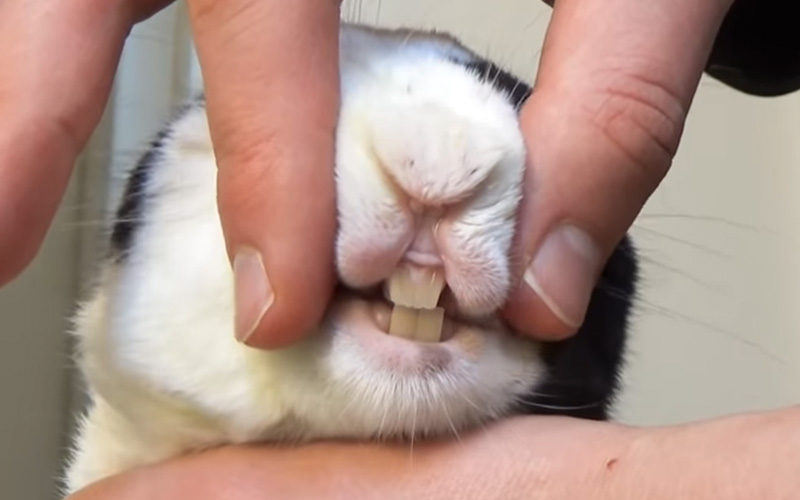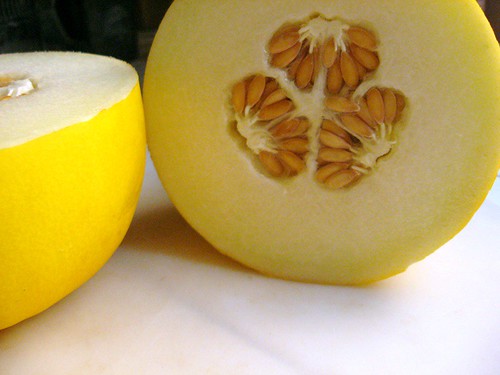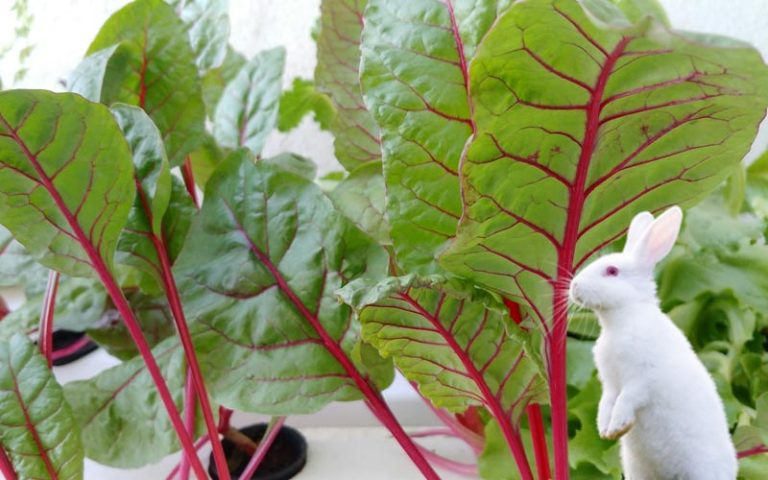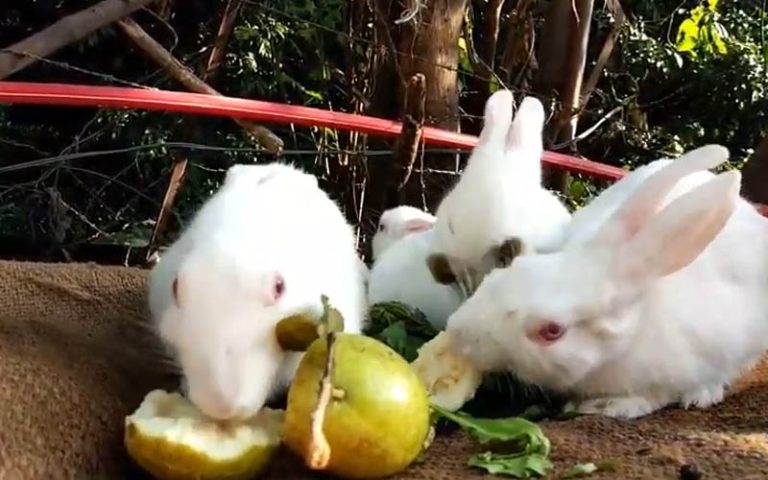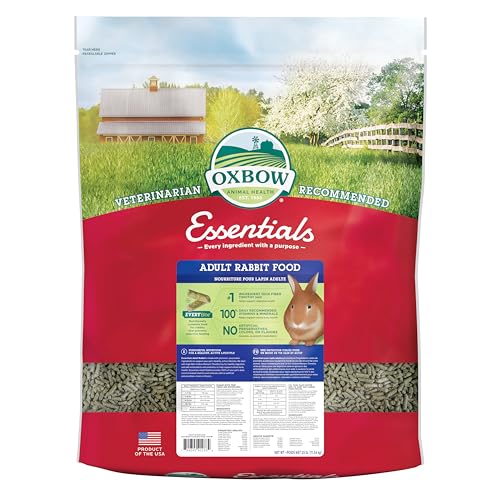5 Common Reasons: Why Do Rabbits Grind Their Teeth?
Rabbits grind their teeth, known as bruxing, as a way to keep their teeth healthy. This natural behavior helps wear down their continuously growing teeth, preventing overgrowth and potential dental issues. It’s similar to humans brushing their teeth to maintain good oral health.
What About Rabbit Teeth Chattering?
Rabbit teeth chattering is a sign of excitement, fear, or annoyance. When a rabbit chatters its teeth, it’s expressing strong emotions. This behavior is common during moments of stress or when they feel threatened. It’s their way of communicating unease.
Why Do Rabbits Grind Their Teeth? – 5 Common Reasons!
As rabbit owners, it’s essential to be attuned to their behaviors, including the sometimes puzzling habit of teeth grinding. The 5 active reasons why rabbits grind their teeth.
1. Dental Health Issues
One of the primary reasons rabbits grind their teeth is related to dental health problems. Rabbits have continuously growing teeth, and if their dental anatomy is not aligned correctly, it can lead to malocclusion.
This misalignment causes discomfort, pain, and even difficulty in eating. In response, rabbits may grind their teeth as a coping mechanism to alleviate the discomfort.
2. Pain or Discomfort
Teeth grinding in rabbits can be an indicator of pain or discomfort in other parts of their body. Like any living being, rabbits can experience various ailments, injuries, or illnesses.
If a rabbit is grinding its teeth persistently, it may be a sign that it is in pain. This pain could be due to gastrointestinal issues, arthritis, or other underlying health concerns.
3. Emotional Stress or Anxiety
Rabbits are sensitive creatures, and changes in their environment or routine can cause stress or anxiety. Teeth grinding can be a way for rabbits to cope with emotional discomfort. A new environment, the introduction of a new pet, or changes in their living space can trigger stress in rabbits.
4. Social Interaction and Communication
Rabbits are social animals, and they communicate with each other through various behaviors, including teeth grinding. In some cases, rabbits may grind their teeth during social interactions with other rabbits or even with their human companions.
This behavior can indicate contentment and is often observed during grooming sessions or while being petted. Understanding the context and body language of the rabbit is crucial in interpreting teeth grinding as a positive social interaction rather than a sign of distress.
5. Chewing and Grinding for Dental Maintenance
While it might seem counterintuitive, rabbits need to chew and grind their teeth to maintain optimal dental health. As mentioned earlier, rabbit teeth continuously grow, and chewing on fibrous, abrasive materials helps wear down their teeth naturally.
In the absence of proper chewing opportunities, rabbits may resort to grinding their teeth as a way to manage the length of their teeth.
What Should I Do About Overgrown Rabbit Teeth?

If you’ve noticed your rabbit struggling with eating or displaying signs of discomfort, overgrown teeth could be the culprit. Rabbits’ teeth grow continuously, and sometimes, due to various reasons, they can become overgrown, leading to potential health issues.
Taking prompt action is crucial to ensure your furry friend’s well-being. Here’s a practical five-step guide to help you tackle the issue of overgrown rabbit teeth.
Step 1: Observe Behavior and Identify Symptoms
Begin by closely observing your rabbit’s behavior. Look for signs such as decreased appetite, difficulty chewing, drooling, or even aggression when approached.
Check for any visible signs of overgrown teeth, like misaligned incisors or elongated molars. If you notice any of these symptoms, it’s time to address the issue.
Step 2: Consult a Veterinarian
Seeking professional advice is essential when dealing with overgrown rabbit teeth. Schedule a visit to your veterinarian, who will conduct a thorough examination.
They will assess the extent of the overgrowth, identify the underlying cause, and recommend an appropriate treatment plan. In some cases, your vet may need to trim the teeth or perform other dental procedures to correct the issue.
Step 3: Implement a Proper Diet
A proper diet plays a crucial role in preventing overgrown rabbit teeth. Ensure your rabbit has access to high-quality hay, which promotes the natural wearing down of teeth through chewing.
Additionally, provide a balanced diet with fresh vegetables and limited pellets to support dental health. Avoid excessive sugary treats, as they can contribute to dental problems.
Step 4: Provide Chew Toys and Gnawing Opportunities
Encourage natural wear and tear of your rabbit’s teeth by offering a variety of chew toys. Wooden blocks, apple branches, or untreated cardboard can be excellent options.
These materials not only satisfy your rabbit’s instinct to chew but also contribute to maintaining healthy teeth. Regular access to these toys helps prevent overgrown teeth and keeps your rabbit entertained.
Step 5: Regular Dental Check-ups and Maintenance
Schedule routine dental check-ups for your rabbit, even if there are no apparent issues. Regular examinations can detect potential problems early on, preventing the development of overgrown teeth.
Your veterinarian may recommend periodic tooth trimming or filing to ensure your rabbit’s dental health is consistently maintained.
How to Prevent Rabbit Teeth Grinding?
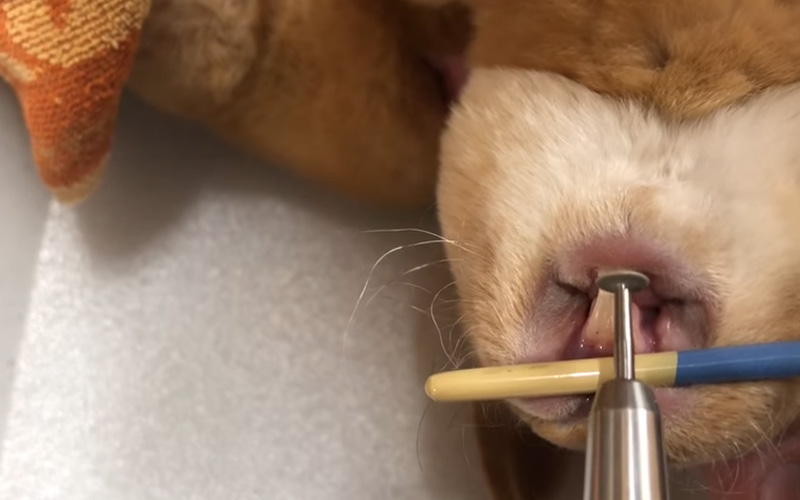
When you hear the sound of teeth grinding, it may indicate that something is amiss. Rabbit teeth grinding can be a sign of pain, discomfort, or dental issues. Preventing this behavior is crucial for your bunny’s overall well-being.
Here are 6 practical tips to help you keep your rabbit’s teeth healthy and prevent grinding.
1. Provide a Well-Balanced Diet
A balanced and nutritious diet is essential for maintaining your rabbit’s dental health. Ensure that your bunny has access to high-quality hay, which helps wear down their teeth naturally. Hay is rich in fiber, promoting proper digestion and preventing the overgrowth of teeth.
Additionally, offer a variety of fresh vegetables to provide essential nutrients and encourage chewing, which aids in keeping their teeth at an optimal length.
2. Introduce Wooden Chew Toys
Rabbits love to chew, and providing them with appropriate outlets for this behavior is crucial. Wooden chew toys are an excellent option, as they not only satisfy your bunny’s natural chewing instinct but also help wear down their teeth.
Choose toys made from safe and untreated wood, such as applewood or willow, to ensure the health and safety of your rabbit. Regular chewing on wooden toys not only prevents teeth grinding but also keeps your bunny mentally stimulated and happy.
3. Monitor Your Rabbit’s Dental Health
Regularly inspect your rabbit’s teeth to catch any potential dental issues early on. Lift your bunny’s lips and check for signs of overgrown teeth, malocclusion, or spurs. If you notice any abnormalities, consult with a veterinarian promptly.
Routine dental check-ups are essential to ensure that your rabbit’s teeth are in good condition and to address any concerns before they escalate. Early intervention can prevent discomfort and reduce the likelihood of teeth grinding.
4. Encourage Natural Foraging
Promote natural foraging behaviors by scattering your rabbit’s food around their enclosure. This not only engages their instincts but also encourages chewing while searching for their meals.
You can hide small portions of pellets or treats in different areas to stimulate mental activity and physical movement. Foraging activities not only prevent teeth grinding but also contribute to a more enriching and stimulating environment for your rabbit.
5. Maintain a Comfortable Environment
A stress-free and comfortable environment is crucial for preventing rabbit teeth grinding. Ensure that your bunny has a secure and quiet space where they can retreat if they feel anxious or scared. Stress can contribute to dental problems and teeth grinding, so it’s essential to minimize potential stressors.
Provide ample hiding spots, cozy bedding, and toys to create a safe haven for your rabbit. Additionally, avoid sudden changes in their environment, and handle them gently to build trust and reduce stress.
6. Schedule Regular Veterinary Check-ups
Regular veterinary check-ups are vital for maintaining your rabbit’s overall health, including their dental well-being. A veterinarian experienced in exotic animals can assess your rabbit’s teeth, address any concerns, and provide professional advice on dental care.
Professional dental care may include teeth trimming, especially if overgrowth or malocclusion is detected. Regular veterinary visits contribute to your rabbit’s longevity and well-being, ensuring that any potential dental issues are addressed promptly.
FAQ
Your rabbit might be grinding his teeth loudly due to dental issues like overgrown teeth or pain. This can be caused by a lack of proper chewing materials or a sign of discomfort.
Rabbits grind their teeth when they sleep. This behavior is a sign of contentment or relaxation. Grinding helps maintain their teeth, which grow continuously. It’s a normal and healthy activity for rabbits, indicating they are comfortable and at ease during their slumber.
When rabbits grind their teeth, it often indicates contentment or pleasure. It’s like a bunny’s way of expressing happiness or comfort. So, if you hear those gentle grinding sounds, it’s a sign that your fluffy friend is feeling good and enjoying the moment.
Teeth grinding in rabbits can be harmful. Grinding, also known as bruxism, may indicate dental issues or discomfort. It can lead to dental problems like overgrown teeth, pain, and difficulty eating.

